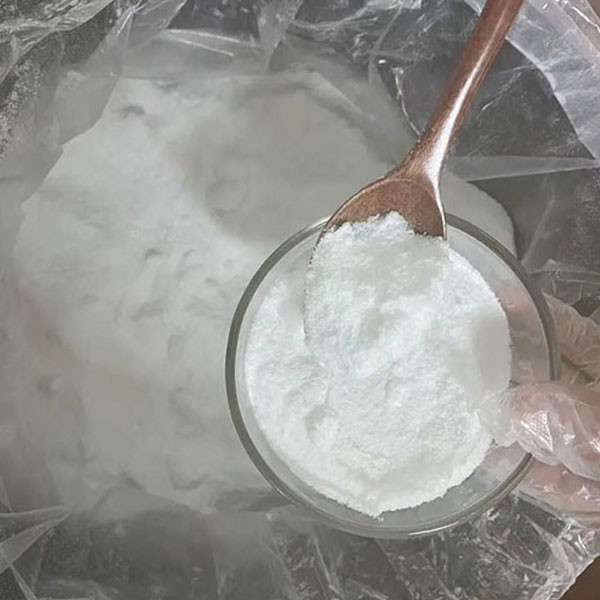Pseudoephedrine Hydrochloride — Clinical Information and Patient Guidance
What is pseudoephedrine hydrochloride? (Pseudoephedrine Hydrochloride clinical information)
Pseudoephedrine hydrochloride is an oral sympathomimetic decongestant used to relieve nasal and sinus congestion. By constricting blood vessels in the nasal mucosa, pseudoephedrine reduces swelling and improves airflow through the nasal passages. This medication is commonly included as a single ingredient or as part of combination cold and allergy formulations.
Common clinical uses (Pseudoephedrine Hydrochloride indications & uses)
Temporary relief of nasal congestion associated with the common cold, allergic rhinitis (hay fever), or sinusitis.
Reduction of eustachian tube (middle ear) congestion related to upper respiratory infections or allergies.
Ingredient in combination products for symptomatic relief when indicated by a clinician.
Typical dosing guidance (Pseudoephedrine Hydrochloride dosing guidance)
Adults and children 12 years and older:
Immediate-release: 30–60 mg orally every 4–6 hours as needed.
Extended-release (12-hour): 120 mg every 12 hours.
Extended-release (24-hour): 240 mg once daily.
Usual maximum daily dose: 240 mg. (Follow product labeling and prescriber instructions.)
Children (age-specific guidance):
Children 6–11 years: commonly 30 mg (half of a 60 mg tablet) or 5 mL of a 30 mg/5 mL suspension every 4–6 hours as directed.
Do not give nonprescription pseudoephedrine formulations to children under 4 years without medical advice; some authorities recommend caution for children under 6 years. Always follow product labeling and consult a pediatrician when in doubt.
Note: dosing regimens vary by product formulation and national guidance—refer to the medicine label or prescriber directions for specific preparations. (Pseudoephedrine Hydrochloride patient information)
Important safety warnings and contraindications (Pseudoephedrine Hydrochloride safety information)
MAOI interaction: Do not take pseudoephedrine if you are currently taking, or have taken within the past 14 days, a monoamine oxidase inhibitor (MAOI). Concomitant use can precipitate a hypertensive crisis. Examples of MAOIs include isocarboxazid, phenelzine, tranylcypromine, rasagiline, and selegiline.
Cardiovascular and other conditions: Use with caution or avoid pseudoephedrine if you have uncontrolled hypertension, severe coronary artery disease, marked hyperthyroidism, severe peripheral vascular disease, narrow-angle glaucoma, severe prostatic hypertrophy with urinary retention, or significant renal impairment. Discuss risks with a clinician before use.
Pregnancy and breastfeeding: Pregnant or breastfeeding patients should consult a clinician to assess risks and consider nonpharmacologic alternatives where appropriate.
Drug interactions — clinical considerations (Pseudoephedrine Hydrochloride drug interactions)
MAO inhibitors — contraindicated.
Certain antidepressants (e.g., tricyclic antidepressants) and other sympathomimetics — may potentiate cardiovascular effects.
Drugs such as beta-blockers or cardiac glycosides may require close monitoring.
Avoid combining multiple preparations that contain decongestants or other sympathomimetics to prevent excessive dosing and adverse cardiovascular effects.
Common adverse effects (Pseudoephedrine Hydrochloride adverse effects)
Adverse effects are generally dose-related and may include:
Nervousness, restlessness, or anxiety
Insomnia or difficulty sleeping
Headache and dizziness
Palpitations or increased heart rate, and in some individuals, elevated blood pressure
Seek immediate medical attention if chest pain, severe shortness of breath, fainting, severe headache, or other signs of a hypertensive emergency occur.
Overdose and emergency response (Pseudoephedrine Hydrochloride overdose guidance)
Symptoms of overdose can include severe agitation, tachycardia, very high blood pressure, hallucinations, seizures, hyperthermia, and cardiac arrhythmias. In any suspected overdose:
Call emergency services immediately.
Provide supportive care (monitor airway, breathing, circulation); advanced teams will manage symptoms.
Bring medication packaging to emergency personnel if available.
If a child has ingested pseudoephedrine, contact local poison control or seek emergency care immediately.
Use in children — precautions (Pseudoephedrine Hydrochloride pediatric guidance)
Nonprescription cough and cold products containing pseudoephedrine are not recommended for very young children. Age thresholds vary by jurisdiction; many guidelines recommend avoiding use under 4–6 years old. Always consult a pediatric clinician before administering decongestants to children and adhere to label directions on duration of use.
Practical administration tips (Pseudoephedrine Hydrochloride practical guidance)
Follow the dosing instructions on the product label or those provided by your prescriber.
Do not exceed the recommended daily dose.
Avoid taking pseudoephedrine close to bedtime to reduce sleep disturbance.
Check all labels to avoid doubling up on decongestant ingredients in combination products.
If symptoms persist beyond the recommended symptomatic period, consult a clinician.
Storage, disposal and regulatory context (Pseudoephedrine Hydrochloride regulatory guidance)
Store at room temperature, in a dry place, and keep out of reach of children.
Retain medicines in original packaging for dosing and expiry information.
Dispose of unused medicine in accordance with local regulations—many communities offer medicine take-back programs. Do not flush medicines unless local guidance permits.
Regulatory context: pseudoephedrine availability and sale conditions differ between jurisdictions. In many regions, sales are tracked or quantity-limited to reduce diversion risk. These controls are for public safety and do not interfere with legitimate clinical use.
When to contact a clinician (Pseudoephedrine Hydrochloride clinical follow-up)
Seek medical advice if you:
Have persistent or severe nasal congestion beyond a few days.
Have underlying cardiovascular disease, high blood pressure, glaucoma, prostate enlargement, thyroid disease, or diabetes.
Are pregnant, planning pregnancy, or breastfeeding.
Are concurrently taking antidepressants, MAOIs, or other significant prescription medicines.
Experience severe adverse effects such as chest pain, fainting, seizures, or very high blood pressure.
Selected references and further reading (Pseudoephedrine Hydrochloride reference material)
Authoritative resources for clinicians and patients include national health services, FDA and other drug regulatory guidance, and standard clinical references. Consult local formularies and product prescribing information for country-specific dosing and safety advice.

Reviews
There are no reviews yet.